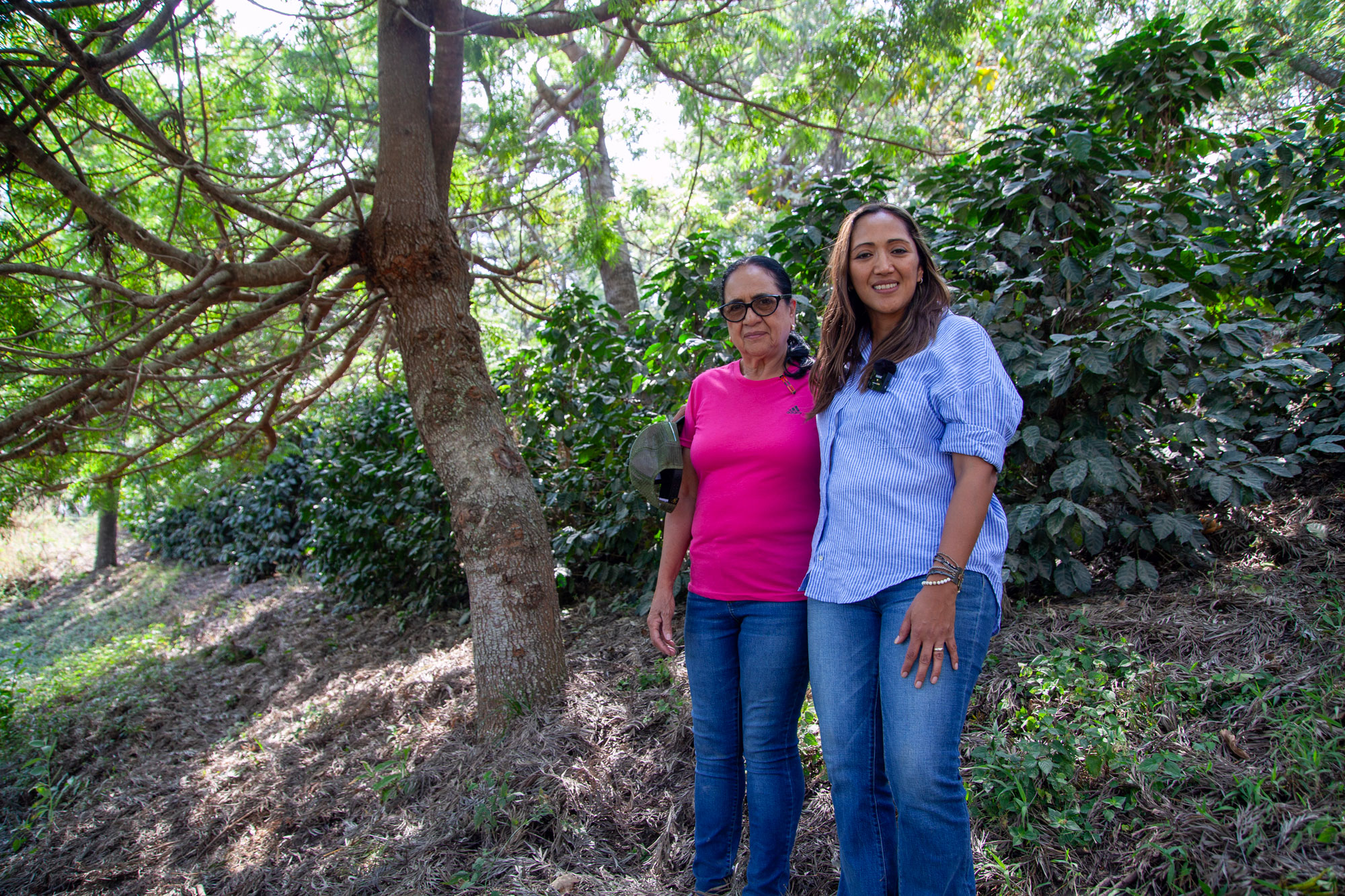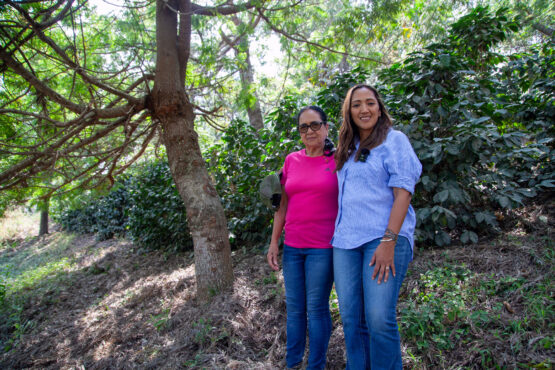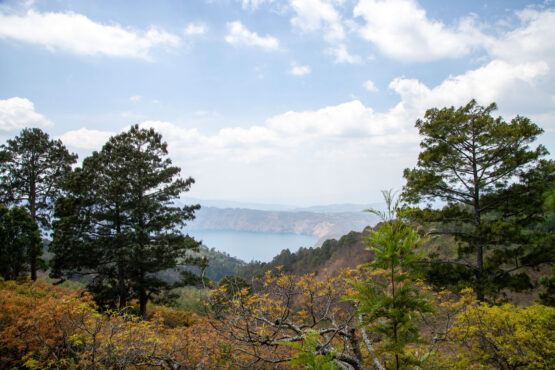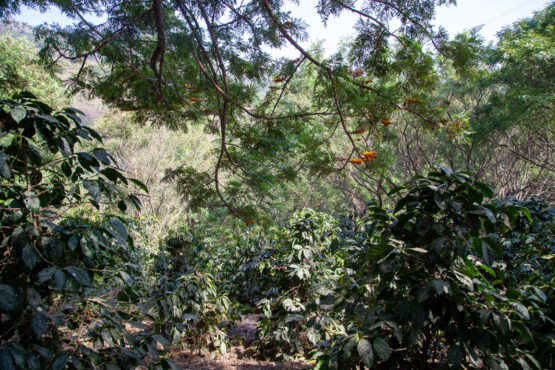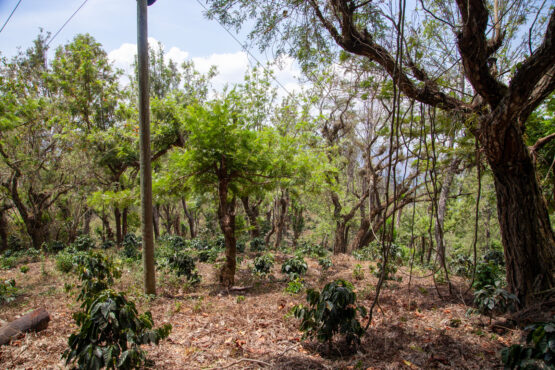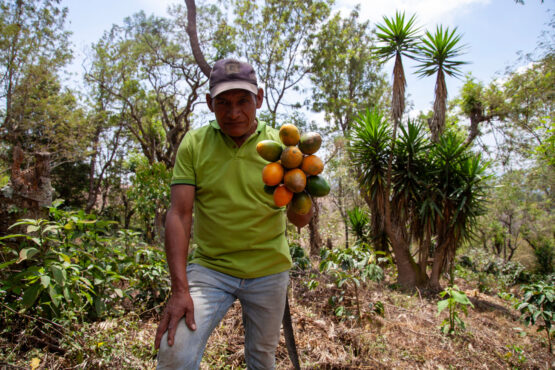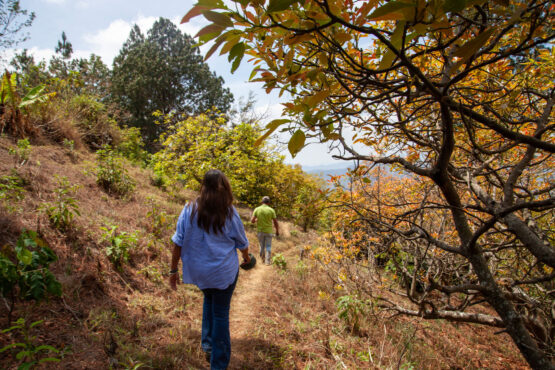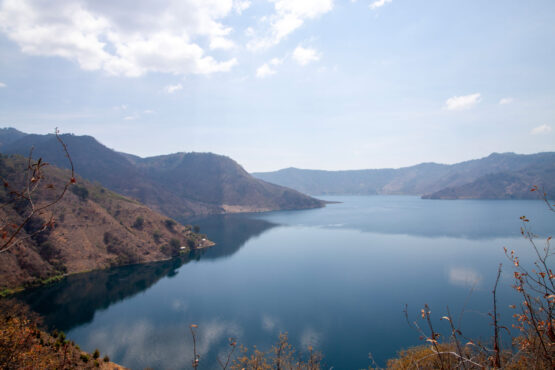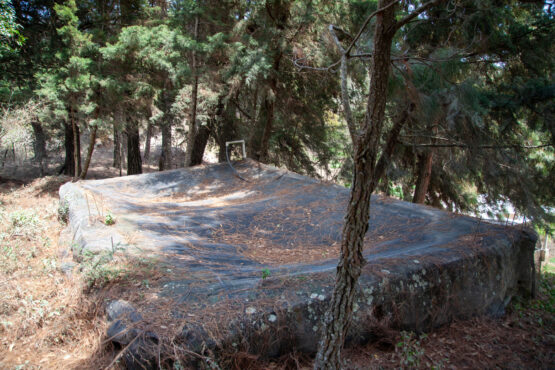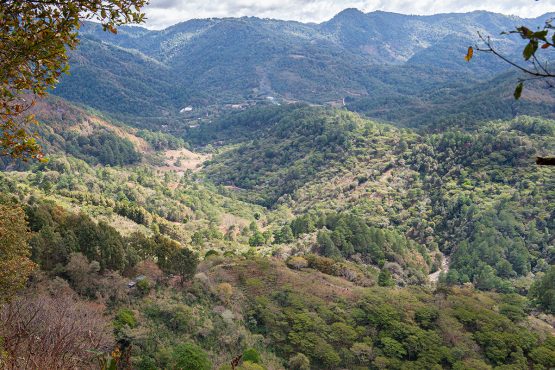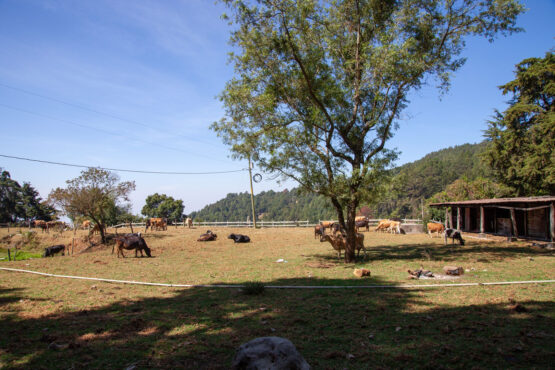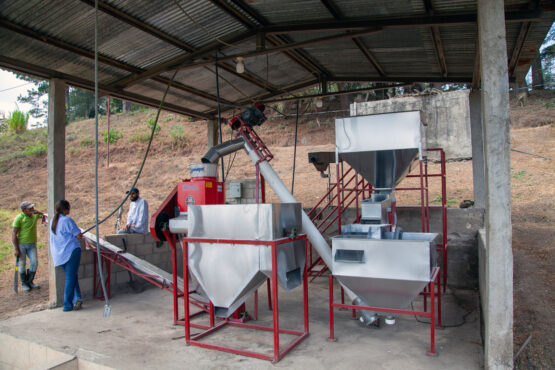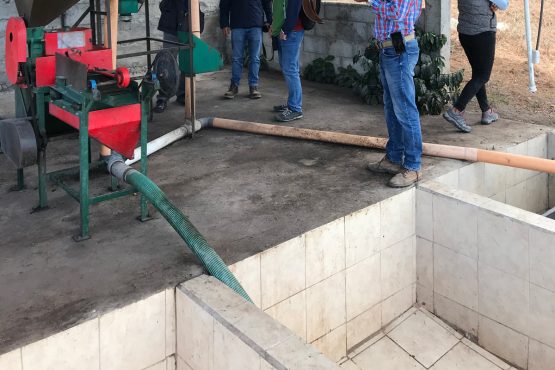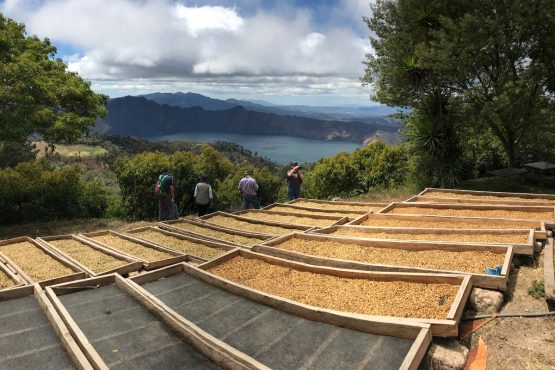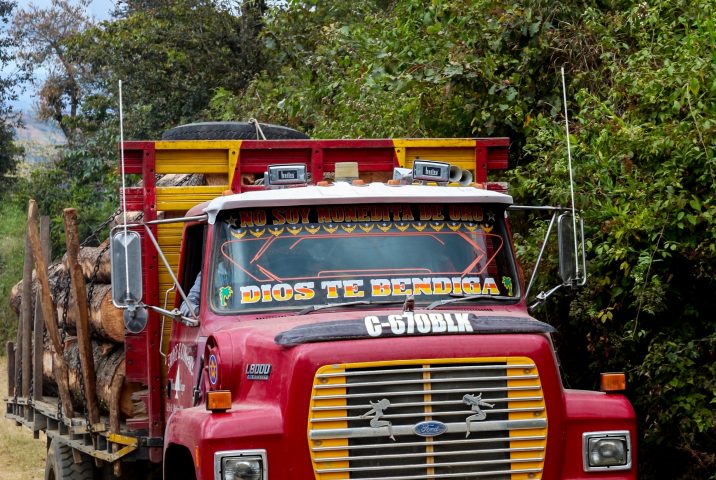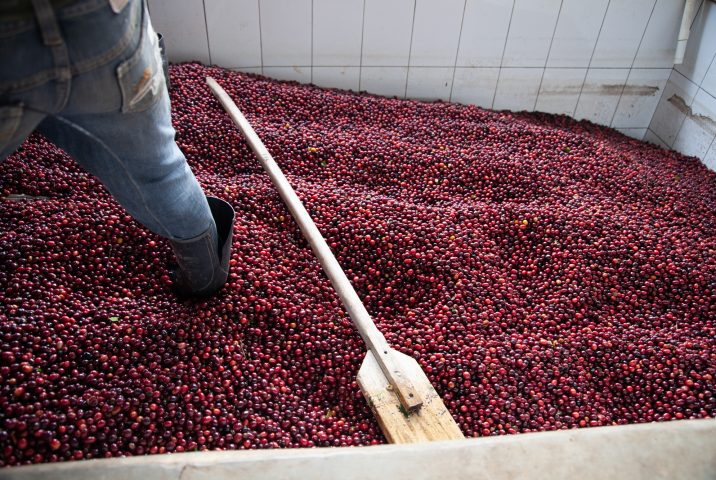Las Cortinas
2024 tasting notes TBC.
This coffee comes from the 90-hectare farm Las Cortinas, located near the village of Laguna de Ayarza in Guatemala’s Santa Rosa department. It was produced by Iris González, who looks after operations at her family’s farm.
Iris is a fourth-generation coffee producer. Her family’s history in coffee dates to the early 1900s when her great-grandparents began establishing farms in the Guatemalan departments of Santa Rosa and Jutiapa, near the southern border with El Salvador. For decades the family grew and sold cherry at the local market, as many independent growers in Guatemala’s south still do.
Iris’ father, Jose Mario González, purchased Las Cortinas in 1991, as he believed that its high elevation of 2,070m above sea level and proximity to the Ayarza lake had great potential for the production of high quality coffee. The farm’s 10-hectares dedicated to coffee were originally planted with varieties that perform well in Guatemala, including Bourbon, Typica, Caturra and Pache.
Sadly, Jose Mario passed away in 1993. At just seventeen, Iris (and her mother Alicia) were left with the enormous task of making Las Cortinas a success. Iris enrolled in agricultural school “for the love of the farm” her mother Alicia explained to us, and set out to breathe a new life into the plantation. Back then, a trip to Las Cortinas from Guatemala City was over three hours long, because no paved roads existed. The price of coffee had crashed in the early 90s, and coffee had become unprofitable, leaving Iris and her mum in a difficult position.
Recognising that their family’s strength was in agriculture, Iris and Alicia decided to plant five extra hectares of the farm’s land with Hass avocados. Not only did this help provide a reliable income during the following years as the price of coffee slowly recovered, but it also helped Iris learn how to overcome Las Cortinas’ biggest challenge: Lake Ayarza’s winds. While the microclimate created by the lake is beneficial to fruit maturation, over time, it has dried out and hardened the soil at the farm, which makes it more difficult for the roots of new trees to take hold easily. The experience taught Iris the importance of creating a rich canopy around the trees’ roots, and of having a shade tree renovation program in place.
As the avocado business began to generate a steady income, the Gonzálezes readied themselves to take the next step for Las Cortinas: establishing a wet mill on-site. Iris began processing her own cherry in 2015, after setting up a depulper and raised drying beds. The project’s initial goal was to increase the value of their crop by processing it themselves — but as the results showed promise, it also became a source of pride for the family. The first few crops were processed as honeys and naturals (Iris’ favourite process!), as these require less water, with washed lots only available upon request.
While the farm sits very close to the Ayarza lake, obtaining water for processing can be a challenge. Iris carefully sources water from three natural springs on the property, fastidiously monitoring their usage each harvest in an effort to conserve what is a very limited resource. The humid environment the lake creates also impacts the length of the drying of the parchment, with natural processed lots needing nearly four weeks to dry completely. Through years of experimenting and hard work, Iris and her team have now perfected all three processing methods, and invested in additional raised beds and a greenhouse for drying. They have now begun planting varieties like Gesha, Batian and Pacamara, in hopes to continue to add value to their yearly crop, along with Catuaí and Anacafe 14 to improve their yields.
Beyond a focus on quality coffee production, Iris also recognises that looking after the environment is key for the future of the farm. The land Las Cortinas sits on is very densely forested, and is home to armadillos, racoons, coyotes and a wild cat called Jaguarundi. All coffee is under the shade of Inga and Gravilea trees, with more native Conifers being planted across the estate. As Iris explains, “we have a responsibility to take good care of the land.” For that same reason, no herbicides are used, and weeds are manually removed to protect the soil. The use of organic fertilisers, like the coffee pulp they recycle, is also prioritised, all water employed during processing is re-used.
A large part of Las Cortinas’ success is due to the dedicated and motivated team who work on the farm. This team is led by Alejandro, who lives at Las Cortinas, and loves working with the Gonzálezes. “I’m grateful to the trust they have in me and the trust I have for them. I’m proud to work hard.” he told us proudly on our last visit.
ABOUT SANTA ROSA
Though the Santa Rosa department is technically not one of ANACAFE’s official coffee-growing origins, in recent years it has become one of the country’s most recognised regions. Farms in Santa Rosa are spread out across the expanse of the department – meaning climatic conditions vary drastically from one estate to another, resulting in a multitude of unique cup profiles.
The region is known for producing much of the country’s commercial-grade coffee, but the range of micro-climates and rich, volcanic soils found in Santa Rosa offer great potential for specialty-grade coffee production. This is evident from the 2022 Cup of Excellence results, when 5 coffees from Santa Rosa were awarded for the first time in the competition’s history.
The department’s north is a valley surrounded by mountains, creating a corridor for dry winds from the Atlantic Ocean to travel south all the way to the Pacific. Because of this, conditions in the north tend to be drier and experience earlier harvests, while the south is more humid and experiences longer rainier seasons.
Santa Rosa is the traditional home of the Xinka people, some of Guatemala’s earliest inhabitants. Having arrived from the Andes mountains via the Pacific Ocean, the Xinka are one of the country’s only indigenous communities that does not share cultural or linguistic similarities with the Maya, Guatemala’s largest indigenous group. While less than two-percent of the modern-day population identify as Xinka, they have become one of the loudest voices in the fight for Guatemala’s environmental preservation. In recent years, the Xinka have stood up to multinational mining companies that buy up land and destroy established farms in search for silver. The community has banded together and fought to be recognised as the region’s traditional owners, who want their land to be used for more environmentally and socially sustainable projects.
HOW THIS COFFEE WAS PROCESSED
Coffee at Las Cortinas is selectively hand-picked across multiple passes, to ensure only the ripest cherries are chosen. Back when the farm only grew cherry to be sold on the local market, workers would pick and then sort through cherries, but this practice changed once the farm began to process its crop.
After picking, cherries are left to pre-ferment aerobically for 72 hours, partly because they are only able to depulp every third day. This is done using permeable nylon sacks, which keeps coffee stable by matching its internal temperature with that of the surrounding environment. At this stage, the team is very careful to place the sacks filled with cherries in a cool, dry place to protect them from the elements, as high temperatures can accelerate fermentation and introduce undesirable flavours.
Cherries are then depulped and left to ferment in tank for 24-36 hours, depending on the weather. The resulting wet parchment is then washed again, and laid to dry on raised beds for 12-19 days, on raised beds, with a greenhouse-style enclosed canopy, which features flexible walls that can be adjusted to optimise airflow and control temperature and humidity. The drying is slow and at a steady rate, largely due to the influence of lake Ayarza. This benefits the coffee in the long run, as it leads to more complex flavours in the cup and a longer lifespan. Once an adequate moisture is reached, coffees are prepared for export by the team at Prisma Coffee Origins.
WHY WE LOVE IT
This coffee is special us for many reasons: it’s produced by two very strong and inspirational women who have worked incredibly hard to make Las Cortinas a sustainable and successful farm. When we met with Iris and Alicia this year, the told us, with tears in their eyes, that “We do all this agronomical work with a lot of care and love, so that you can experience a little of what Guatemala can produce. We do it with love and hard work.” The amount of care and effort that has gone into this coffee is evident in the final cup, and we’re so grateful to Iris and Alicia for it!
